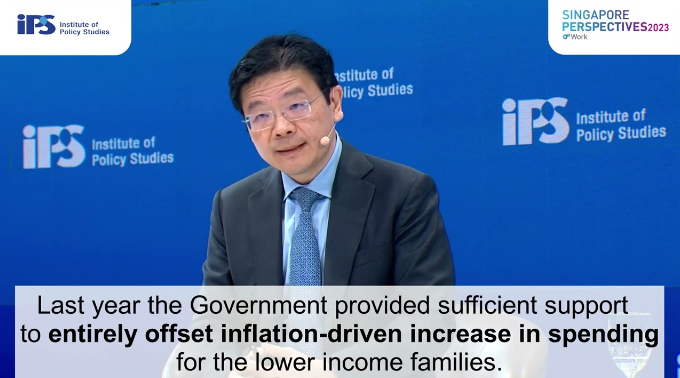SINGAPORE: A recent Channel 8 survey interviewing 1,000 Singaporeans and permanent residents highlights mounting concerns over inflation’s impact on h
SINGAPORE: A recent Channel 8 survey interviewing 1,000 Singaporeans and permanent residents highlights mounting concerns over inflation’s impact on household finances. Findings reveal that only 48% feel their income is sufficient to manage inflation, a noticeable drop from the previous year, while 52% believe they are financially unprepared to keep up with rising costs.
With 96% of respondents expecting a further increase in living expenses in the coming year, financial apprehension appears widespread. However, 63% of those surveyed believe government support packages can help ease some of their economic strain. This confidence is particularly strong among residents of one- and two-room HDB flats (73%) and, to a lesser extent, those in five-room HDB flats (66%). Conversely, only 46.4% of private property residents feel the same—a number that has nevertheless increased over the past year.
Despite this optimism, only 47% of respondents believe that the government’s efforts to counter inflation have been adequate. Satisfaction with government measures also varies significantly by income bracket. While nearly half (49.4%) of households earning under $4,000 per month are satisfied with the support, this drops to 47.7% for those earning between $4,000 and $7,999. Discontent peaks among higher earners with monthly incomes of $12,000 to $19,999, 55.3% of whom feel that current measures fall short—an increase of over 10% from the previous year.
The results highlight an increasingly divided outlook on the government’s role in alleviating inflation and cost-of-living pressures.



COMMENTS